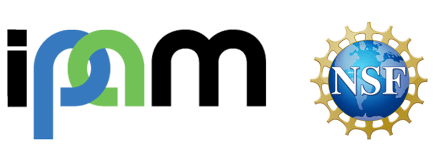Machine Reasoning Workshops III & IV: Mission-Focused Actions/Reactions Based on & System Integration of Information Derived from Complex Real-World Data (by invitation only)
Overview
These two workshops will address two topics important for efficiently obtaining and utilizing the information inherent in complex real-world data, namely Actions/Reactions and System Integration. Each is described in detail below. Workshop III on Actions/Reactions will begin on Monday, October 18 in the morning and continue through lunch on Tuesday, October 19. Workshop IV on System Integration commences after lunch on Tuesday, October 19 and continues through Wednesday, October 20. There will be a combine reception on Monday evening. Those wishing to participate in one or both workshops must apply and be accepted.
Workshop III (Oct 18 – Oct 19): Plan-Replan, Act-React
This workshop will focus on adaptivity, with the goal of developing a sound mathematical framework that leads to a system delivering a set of actions/strategies/policies based on existing information and consistent with the mission objectives defined by an external source. The framework must function with uncertain, incomplete, imprecise, and contradictory data, while fine-tuning and adjusting the system and inferences as new information is obtained. The system will be multi-sensor and multi-platform, operating in a scenario with limited communications capacity. The workshop will also address the development of optimal and near-optimal scheduling algorithms for sensor management. The system should recognize which information is relevant for achieving mission objectives, sufficiently reliable to enable actions to be taken, unreliable, and unknown. The system should develop strategies to collect new information that resolves ambiguities or lack of knowledge. The system must act and react in real time, and therefore computational efficiency is critical. In this context, approximate methods are envisioned with provable near-optimal performance.
A particular topic of interest is the exploitation of submodular cost functions that provide performance guarantees relative to optimality, while also yielding computational efficiency. Techniques from control and sensor scheduling are also of interest, including efficient approximations to partially observable Markov decision processes (POMDPs) and related constructs. In addition, ideas from game theory may be of interest for adapting the sensing strategy as the base of information expands. Theory on the adaptive design of optimal and near-optimal experiments is of interest as well.
Workshop IV (Oct 19 – Oct 20): System Integration
This workshop will focus on constituting systems constructed from heterogeneous stationary sensors, mobile sensors, and computational resources, integrated with complex software, communication systems and humans, leading to an adaptive system that works in the field. The sensors, communications, and computation support multiple spatial and temporal constants, which leads to a challenging dynamical system. We will investigate mathematical issues related to providing an engineered system with guarantees of performance, and tradeoffs between incorporating new and partially proven concepts (e.g., algorithms, software) in an adaptive sensing system, addressing the proper balance of new-technology integration with system and performance risk. The adaptive system will also be operated by and in support of humans, with the goal of having the humans perform cognitive functions and not servicing the automated portion of the system.
We will also examine the types of small-scale experiments one may perform with the new system, to test anticipated performance and make refinements, so that one may provably make the case that the system achieves the desired program goals, before full-scale testing. This may be viewed as a matrix of possible experiments and tests that need be performed; we are interested in the optimal subset of elements from this matrix that need be tested, such that one may provably assure predicted performance across the full matrix. This component of the workshop may include new ideas on low-rank matrices and matrix completion. The workshop will also encompass ideas from the optimal design of experiments, with the goal of assessing system capabilities, while also accounting for testing costs. Finally aspects of multiscale dynamical systems theory are also of interest for this workshop.
Organizing Committee
James Allen
(University of Rochester)
Lawrence Carin, Chair
(Duke University)
Pedro Domingos
(University of Washington)
Leslie Greengard
(New York University)
Carlos Guestrin
(Carnegie-Mellon University)
John Laird
(University of Michigan)
Josh Tenenbaum
(Massachusetts Institute of Technology)
Bob Tenney
(BAE Systems)
Claire Tomlin
(University of California, Berkeley (UC Berkeley))
